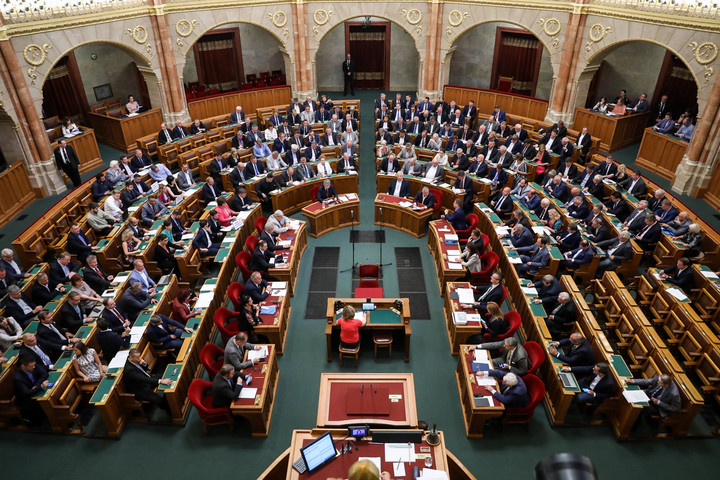The Hungarian parliament approved the country’s proposed 2023 central budget on Tuesday in which the government anticipates economic growth of 4.1 percent, a deficit of 3.5 percent, and inflation of 5.2 percent.
The budget was passed by 135 votes to 54.
According to the presentation of Finance Minister Mihály Varga, the government is counting on the prolongation of the war in Ukraine, which would further worsen the cost-of-living crisis, the effects of the introduced sanctions, the consequences of the energy crisis caused by the war, wartime inflation, and the economic crisis unfolding in Europe.
Árpád Kovács, the chairman of the Budget Council, said before the decision was made that, according to the council, the amendments in the unified budget proposal do not change the planned cash flow deficit, so the amount of the public debt and the accrual deficit do not change either. He confirmed that the constitutional requirements of the budget had been met.
According to the government’s pledge, the resources of the budget will be used to support families, protect pensions, preserve the results of utility bill reductions, strengthen the country’s security, protect jobs, and support the creation of new ones, in addition to keeping the economy on a safe path of growth.
Next year, the expenditure of the central budget will be HUF 33.4 trillion (€84 billion), while its income will be HUF 31.1 trillion. According to this, the deficit will be HUF 2.4 trillion (€6 billion).
The government would reduce the national debt to 73.8 percent of GDP by the end of next year, which is expected to be 76.1 percent of GDP at the end of this year.
In the structure of next year’s budget, the previous funds will be complemented by two new ones: the utility defense fund, in which HUF 670 billion (€1.7 billion) is available, and the national defense fund, in which HUF 842 billion (€2.1 billion) is available.
The first fund provides resources to maintain overhead reductions, while the national defense fund makes it possible to achieve the government’s commitment to NATO to increase national defense spending sooner, by the end of 2023.






